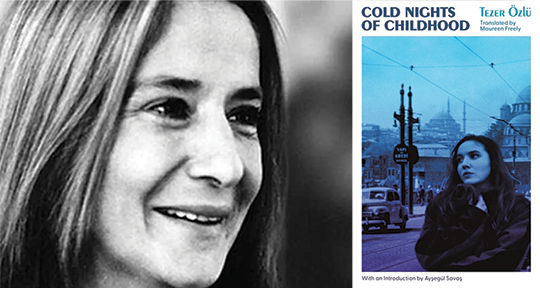Cold Nights of Childhood by Tezer Özlü, translated from the Turkish by Maureen Freely, Serpent’s Tail/Transit Books, 2023
Known as the melancholy princess of Turkish literature, Tezer Özlü is one of the most influential figures of women’s writing in Turkey. Inspiring generations of writers with both her life and distinct writing voice, Özlü has been a permanent fixture in country’s intellectual history; it’s surprising that such a beloved figure of Turkish literature is debuting in English only now. Fortunately for us, her glaring absence from international publishing has finally been remedied by Serpent’s Tail (UK) and Transit (USA), and English language readers can now discover the genius of a unique writer.
Despite being remembered as a leftist and feminist, Özlü was never a part of the revolutionary struggle like other famous Turkish authors recently translated into English. In Cold Nights of Childhood, she writes: “I was never a part of a revolutionary struggle. Not during the 12 March era, and not after it, either. All I ever wanted was to be free to think and act beyond the tedious limits set by the petit bourgeoisie”. She wasn’t imprisoned or tortured like Sevgi Soysal or involved in organized politics as her close friend Leyla Erbil. Even though she retained leftist sensibilities and occasionally wrote about class struggle, her revolt was more individual and existential. Accordingly, she wrote autobiographical novels which situate readers in the midst of her confrontation with different kinds of authority.
Cold Nights of Childhood is a compact example of her autofiction, and a perfect choice to introduce Özlü to new readers, encapsulating the themes and style that launched her as a tremendous force in the Turkish literary. In the afterward to the novel, translator Maureen Freely writes: “she was one of the very few who broke rules at sentence level, refusing continuity, and slashing narrative logic to evoke in words the things she truly felt and saw, that we all might see them”. Rejecting the linear narrative, she weaves together fragments of time; this experimentation with chronology enables her to reflect on her past while also imagine a way for a gratifying future. READ MORE…


